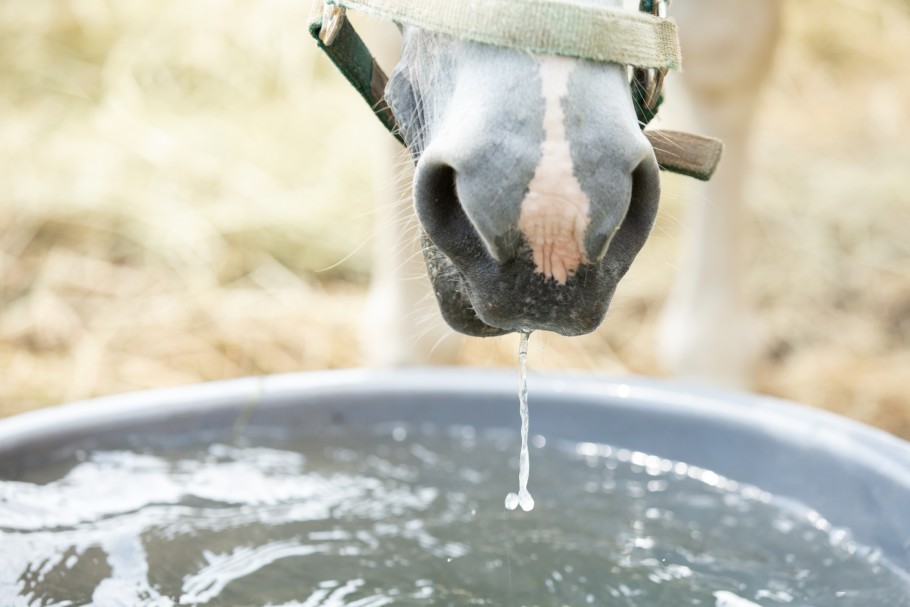Salt or Electrolytes - Which One Does Your Horse Need?

When it comes to choosing salt or electrolytes, it is important to sweat the details. (Pun very much intended!)
Updated March 28, 2024
The Role of Salt in Your Horse’s Health
Salt (also known as sodium chloride or NaCl) plays an important role in normal nerve and muscle function and can help encourage your horse to drink, making it critical for his well-being. Adult horses in no work need at least 1 ounce of salt per day, and that need goes up with exercise and warm weather. If your horse’s daily requirements for salt are not met, he may not be in optimal health nor able to perform at his best.
Pasture, hay, and fortified grain provide very little sodium chloride, which means many horses’ diets come up short. Providing a salt lick can help, but some horses use their licks frequently, while others don’t use them at all. Luckily, there are two types of supplements that can help meet your horse’s salt requirements consistently, day in and day out:
- salt supplements
- electrolyte supplements
Read on to learn more about each, and how to choose the right type of supplement for your horse.
Giving Your Horse a Salt Supplement
Salt plays a key role in the health and well-being of your horse, so it’s important to ensure that his daily requirement is being met. Unfortunately, according to our survey, 60% of horses aren’t getting enough sodium!
A salt lick can help, but some horses don’t lick them at all, and others lick them excessively or bite off chunks, so you never know if they’re getting the correct daily amount. Salt supplements provide the two macro-minerals that make up salt (sodium and chloride), ensuring that your horse is always getting a consistent amount to help meet his daily requirements.
Video on How Much Loose Salt a Horse Should Get Everyday
Salt for Horses in the Winter
In addition to supplying the salt your horse needs, a salt supplement may help encourage normal drinking. Many horses drink less in the winter because they don’t like cold water. Proper hydration is essential to your horse’s digestive function and overall well-being, no matter what season it is. Supplementing with salt during the winter is a smart way to help ensure your horse stays happy, healthy, and hydrated.
Electrolyte Supplements to Replenish Multiple Minerals
Electrolytes are carefully formulated to mimic the minerals lost in sweat. When your horse sweats, he loses salt and other key minerals including potassium, calcium, and magnesium. These macro-minerals are essential to normal nerve and muscle function. If the minerals are not replenished, your horse could be left with a nutritional imbalance.
Electrolyte supplements help to bring your horse back into balance by replacing the minerals. Also, the salt contained in electrolyte supplements can help encourage your horse to drink, which is critical to healthy digestion and normal fluid balance throughout his body.
While electrolytes do contain some salt, it’s typically not enough to fulfill your horse’s daily sodium requirements. Therefore, you may need to give your horse both salt and electrolytes to meet his needs. It’s important to read product labels and not stop giving your horse the baseline salt they need in addition to mineral replacements. You can feed both the 1 ounce of salt plus an electrolyte supplement.

Electrolytes in Times of Sweat and Stress
Electrolyte supplements can be a smart choice to add to your horse’s diet when they’ve been sweating or may be going through stressful times (such as on a long trailer ride). In times when your horse doesn’t sweat, his baseline sodium requirements can be met by the 1 ounce of plain salt (this also fulfills his chloride requirements). When your horse is sweating – whether in winter, summer, or any time in-between – those sweat losses need to be replaced. That’s why many horses can benefit from a comprehensive electrolyte supplement year-round.